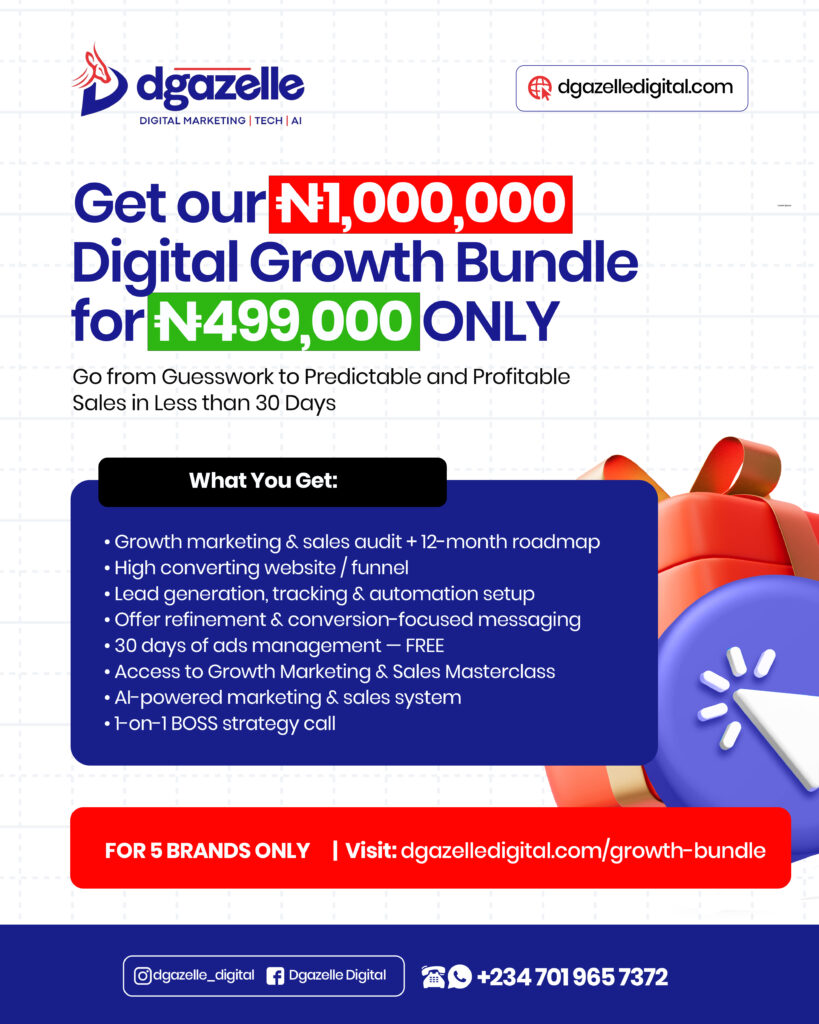Most business websites are a complete waste of money.
They look good. They feel professional. But they don’t do anything.
❌ No leads.
❌ No sales.
❌ No measurable growth.
Why?
Because they were designed based on emotion, not strategy.
You don’t just build a website because everyone else has one. You build the right website that works for your specific business model, target audience, and offer.
In this guide, I’ll show you the 7 types of websites that actually drive results and help you choose the one that aligns with your business goals. Not based on trends, not based on guesswork, but based on function, purpose, and profit.
1. The Business Website: Build Authority, Build Trust
If your business offers services, especially offline, you need a strong online presence, and that starts with a business website.
Think of this as your digital headquarters. It introduces your brand, tells your story, outlines what you offer, and builds trust with prospects.
Perfect for:
- Service providers
- Consultants
- Agencies
- Local businesses
- Professionals
Your business website should answer three core questions:
- Who are you?
- What do you do?
- Why should I trust you?
Key features to include:
- Clean homepage with your core promise
- About section (your brand story)
- Clear list of services
- Testimonials and case studies
- Strong contact section
- One clear call to action (CTA)
Pro tip: Don’t overload it with fancy animations. Keep it simple, clear, and results-driven.
2. The E-commerce Website: Sell While You Sleep
If you want people to click, buy, and pay online, then an e-commerce website is your weapon of choice.
Whether you’re selling physical products or digital downloads, this type of site allows you to
- List products
- Accept payments
- Handle orders
- Manage shipping or delivery
But here’s the trap most online store owners fall into: they obsess over the design and ignore the conversion strategy.
An e-commerce site isn’t just a store; it’s a 24/7 salesperson. Every product page must sell. Every headline must hook. Every CTA must convert.
Features your e-commerce site must have:
- Product descriptions that sell, not just describe
- High-quality product images
- Mobile-friendly layout
- Fast page speed
- Secure checkout
- Reviews and trust signals
SEO Tip: Optimize each product page like a landing page. Use keywords, product benefits, and persuasive copy.
3. The Portfolio Website: Let Your Work Sell You
If your work speaks louder than words, you don’t need to say much; just show it.
A portfolio website is essential for creatives and service professionals who want to land high-paying clients.
Ideal for:
- Graphic designers
- Photographers
- Videographers
- Writers
- Architects
- Event planners
Your portfolio must be
- Easy to navigate
- Visually appealing
- Proof-driven (show results)
- Action-oriented (make it easy to contact you)
Don’t just upload pretty pictures. Add context. What was the project about? What results did you deliver? Who did you help?
Psychological tip: People don’t hire skills—they hire certainty. Your portfolio should scream, “I’ve done this before, and I can do it again.”
4. The Booking Website: Automate Your Calendar, Filter Your Clients
If you’re tired of wasting hours replying to DMs, emails, and no-shows, it’s time to get smart.
A booking or appointment website automates everything. Clients can:
- Choose a date
- Pick a service
- Make payment
- Get a confirmation—all without your involvement
Best for:
- Coaches
- Consultants
- Hairstylists
- Fitness trainers
- Medical professionals
- Tutors
This saves you time, filters out unserious enquiries, and keeps your operations tight and organized.
Pro tip: Integrate calendar sync, email reminders, and payment options. Let your website work while you sleep.
5. The Landing Page Website: One Offer, One Goal, One Result
Sometimes, all you need is one powerful page.
A landing page website is built to do one thing only: convert.
Use it when:
- Running Facebook or Google ads
- Promoting a webinar
- Launching a course
- Giving away a free guide or lead magnet
This is not the time for fancy menus or a 10-page layout. Keep the visitor focused on one action: signing up, registering, downloading, or buying.
Core landing page structure:
- Irresistible headline
- Specific offer
- Social proof
- Urgency or scarcity element
- One strong CTA
Conversion tip: Remove distractions. Every word, image, and button should guide the user to take one action.
6. The Blog or Content Website: Build Authority and Drive Organic Traffic
This is your long-game strategy.
If you want to dominate Google, build thought leadership, and attract organic leads, then a content-driven website is your best move.
You write helpful articles that answer specific questions your audience is already Googling. Over time, this builds traffic, trust, and authority.
Best for:
- Coaches
- Consultants
- Educators
- Digital creators
- Niche brands
But here’s the catch: Consistency is non-negotiable. A dead blog is worse than no blog.
SEO Essentials:
- Keyword-optimized articles
- Fast-loading pages
- Internal linking
- Meta descriptions and alt tags
- Mobile-responsive design
Power tip: Turn each blog into a lead funnel; offer a free checklist, ebook, or video in exchange for an email address.
7. The Membership or Course Website: Sell Your Knowledge at Scale
If you’ve built an audience and they’re hungry for more, you don’t need to trade time for money anymore.
A membership site or course platform allows you to
- Sell premium content
- Host online courses
- Build a paid community
- Offer exclusive access
It’s a smart way to monetize your expertise and build recurring income.
Perfect for:
- Coaches
- Experts
- Teachers
- Creators
- Niche communities
But here’s a warning: don’t start here too soon. You need:
- An audience
- Proof of demand
- Sales funnels
- Onboarding systems
- Retention strategies
Success tip: Before launching a course, validate it with free content, a webinar, or a waitlist.
So, which website does your business need?
There is no one-size-fits-all answer.
The right website for you depends on what your business needs right now, not what’s trending or what your competitor just built.
Ask yourself:
- Do I want people to buy directly? → E-commerce site
- Do I want people to know, like, and trust me? → Business site
- Do I want people to see my work? → Portfolio site
- Do I want people to book me automatically? → Booking site
- Do I want fast conversions from ads? → Landing page
- Do I want to rank on Google? → Content/blog site
- Do I want to sell courses or build a community? → Membership site
Clarity comes before creativity. Strategy comes before software.
Need a Website That Sells? Let Dgazelle Build It.
At Dgazelle Digital Agency, we don’t just build websites that “look nice.”
We build websites that perform, convert, and scale your business.
Whether you need a sleek service site, a high-converting funnel, or an online store that runs on autopilot, we’ll build it with strategy, not just style.
✅ Conversion-focused
✅ SEO-optimized
✅ Mobile-responsive
✅ Built for your audience and offer
Stop guessing. Start growing.
Click here to contact us, and let’s build the website your business actually needs.







